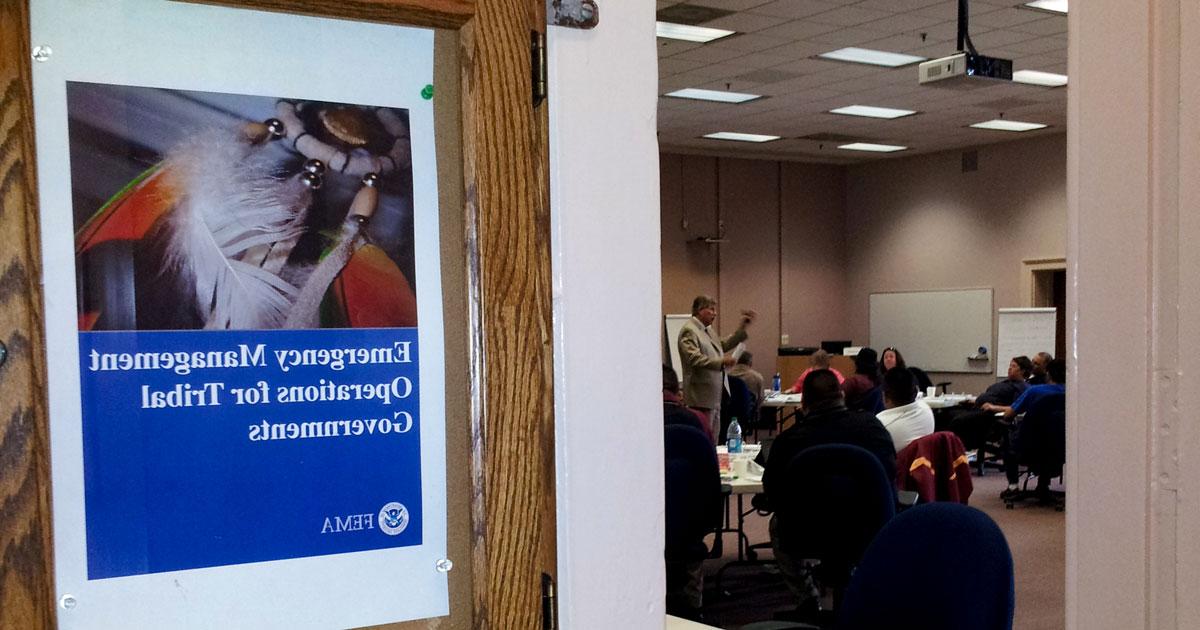
S&K teams with Salish Kootenai College and FEMA to improve Emergency Management Training for Tribal Communities
There are 4 phases of emergency readiness: mitigation, preparedness, response, and recovery. Having a plan for each reduces the harmful effects natural disasters and other accidents can have on a community.
These concepts are part of a training curriculum that S&K工程 and 研究, LLC (SKER) and Salish Kootenai College (SKC) are updating under a contract with the Federal Emergency Management Agency (FEMA). FEMA in turn offers the courses to American Indian and Alaska Native tribes to help them create and carry out Emergency Management Plans for their communities.
SKER is a subsidiary of S&K技术, Inc., a family of companies owned by the Confederated Salish and Kootenai Tribes.
SKER and SKC are updating three 教育al courses by revising course content, 学生手册, 资源指南, and instructor guides. New exercises and multimedia aids like videos are also being created.

每个月, the courses are hosted online and in-person at the FEMA Training Center located in Emmitsburg, MD. The three updated courses will be offered starting in March 2021. These instructor-led courses are each four days long and free to attend for all 部落成员. Attendees learn how to network with other tribes and apply online for Emergency Management grants. 例如, if a tribal nation has issues with flooding in their geographic region, they can apply for a grant related to water mitigation.
SKER Program Manager Adrienne Bibby describes her experience working on this project, “This work has been interesting and I’m enjoying learning about tribes all over the country. I’ve learned more about tribal living and Emergency Management. Being prepared can help the tribes protect their land in spite of the impacts of climate change.”
SKC has a long history designing courses for FEMA. Lead Subject Matter Expert for this project, 格雷格·古尔德, helped design the original FEMA courses in the early 2000s. Gould explains why he likes working on Emergency Management courses, “The thing I enjoy most about developing 教育al materials for our tribes is the joy of helping build a resilient community.”
The courses are designed to improve emergency responsiveness regardless of hazard, 大小, 或复杂性. Students are given tools to help their tribal communities better protect their citizens, 土地, 文化, 和主权.
 The FEMA employees that administer this contract are committed to helping build resilient communities. “FEMA has been providing tribal specific emergency management training at the Emergency Management Institute for the last 18 years,古尔德说。. “This project continues that effort and takes it into the next generation of tribal emergency managers.”
The FEMA employees that administer this contract are committed to helping build resilient communities. “FEMA has been providing tribal specific emergency management training at the Emergency Management Institute for the last 18 years,古尔德说。. “This project continues that effort and takes it into the next generation of tribal emergency managers.”
欲知详情,请浏览: http://training.fema.gov/tribal/




